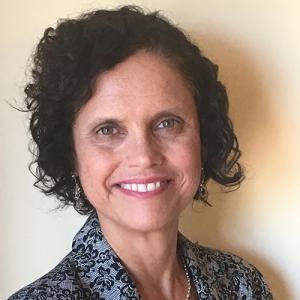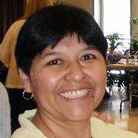ESOL Endorsement & Certificate
The ESOL Endorsement/Certificate program at WOU prepares teachers to work effectively with culturally and linguistically diverse students in mainstream, sheltered, bilingual, and English Language Development (ELD) classrooms. Students will learn both the practical and professional knowledge needed to be an effective teacher of students in inclusive settings. You can add this valuable endorsement to your teaching license with just 18 credits plus a 3 credit practicum, or just 18 credits for the Certificate.
Start the your program next term! Now accepting applications!
credits required
Program Details
Overview
Designed for:
Endorsement:
Provides K-12 ESOL and Bilingual ESOL credential for licensed Oregon teachers. Oregon Teacher Standards and Practices Commission (TSPC) identifies standards aligned to the Bilingual/ESOL educator endorsement.
Certificate:
The program is aligned to these standards but will not culminate in an educator endorsement as it targets support school personnel and other interested education professionals.
Both programs join a large portfolio of nationally accredited educator programs in the College of Education at Western Oregon University.
To start, you need:
- A bachelor’s degree (Note: students may also obtain the endorsement at the undergraduate level, in conjunction with a bachelor’s degree)
Finishing will take:
- 1 year or less
- 21 credits, which includes the completion of a 3-credit practicum (Endorsement)
- 18 credits (Certificate)
Begin your ESOL endorsement/certificate program:
- Next term
Where you will take classes:
- ESOL Online/distance fall, winter, spring, and summer
Licensing required:
Must hold a valid Oregon teaching license or be working towards your Master of Arts in Teaching license to obtain the endorsement.
Where this endorsement/certificate can take you:
- Better serve the needs of Emergent Bilinguals within any educational context
- Become a K-12 ELD/ESOL specialist
What you will learn:
This program prepares teachers to work effectively with culturally and linguistically diverse students in mainstream, sheltered, bilingual, and English Language Development (ELD) classrooms.
Learning outcomes:
- Prepare teachers and other education professionals to understand how first and second languages are acquired and developed and apply research-based teaching and assessment practices that address the needs of emerging bilingual students in a variety of school settings.
- Prepare teachers and other education professionals to foster a climate that is inclusive of all diversity and understand the influence of culture on students’ learning process and academic achievement.
- Prepare teachers and other education professionals who are knowledgeable about policies related to the education of emerging bilingual students and who collaborate with colleagues, administrators and families to meet learners’ needs.
As the demographics of the state change and the language minority population increases, teachers need to be prepared to educate culturally and linguistically diverse (CLD) students. Teachers with bilingual/ESOL education credentials are in high demand and are usually first to be hired by school districts with high CLD populations. This program prepares teachers to work effectively with CLD students in mainstream, sheltered bilingual and English Language Development (ELD) classrooms.
Bilingual Teacher Program:
The Bilingual Teacher Program recruits, retains and recognizes bilingual students in teacher preparation programs at WOU. A variety of support services and opportunities are offered students pursuing the Bilingual/ESOL Endorsement, who are known as Bilingual Fellows. Learn more.
Application Requirements
Program Start Dates:
You may apply to start the program in the fall, winter, spring, or summer terms.
Application Deadlines:
- Fall Term: September 1st
- Winter Term: December 10th
- Spring Term: March 10th
- Summer Term: June 1st
Detailed application requirements:
Application materials required for WOU Graduate admission:
- Application Fee $60
- Transcripts
- You can upload an unofficial copy of your transcript to complete your application for admission. Save as a PDF with your first and last name in time from all previous colleges. We will require an official transcript from the Colleges or Universities you have attended for formal admission.
- Transcripts are used as Evidence of completion of a four-year baccalaureate degree (or international equivalent) from a regionally accredited institution as defined by the American Association of Collegiate Registrars, with a cumulative B average (equivalent 3.00 on a U.S. 4.00 grading scale) on the most recent baccalaureate degree. Applicants who hold a master’s degree will have the 3.0 GPA requirement waived. Students with less than 3.0 can also provide passing GRE scores to be fully admitted.
- Current Resume
- Save as PDF with your first and last name in the title.
- Personal Statement
- Please provide a brief statement explaining your interest in a graduate degree in education, the content specialty area you are interested in pursuing, and how it will help you meet your current and/or future professional goals.
- Professional Characteristics Form
- Review the professional characteristics document and upload it.
Process: Applications will be reviewed once all application materials have been submitted. Please refer to the Application Checklist in your Graduate Application Portal to confirm the status of your submitted materials. The Graduate Application Portal will also provide additional details about the checklist items for further clarification. You will be notified via email regarding changes in the status of your application or if you are missing any application components.
Curriculum
ESOL Endorsement/Certificate curriculum overview:
We strongly recommend that students take ED 681, ED 682, and ED 683 before all other courses. All candidates must pass the NES ESOL exam and complete the requirements of the ESOL practicum for credentialing. ED 609 is required to recommend for the endorsement.
Endorsement/Certificate program plans:
Once admitted to ESOL Endorsement Program, you will work with an advisor to plan the courses you will take and how you will complete the academic requirements of the program. By filing this Endorsement Program Plan (PDF form), you have a road map for completing your endorsement and clarity on what to expect. Students that wish to complete the Certificate program are not required to take the practicum courses.
*Students completing an endorsement, certificate, or specialization only are not eligible for federal financial aid.
ESOL Course Descriptions
ED 681 Introduction to ESOL and Bilingual Education (3 credits) This course explores the foundational principles of inclusive education for emergent bilingual students. Topics include principles of second language learning, instructional practices that support emergent bilinguals in accessing academic language in the content classroom, equity and advocacy for linguistically diverse students and their families, and differentiation of instruction in the linguistically and culturally diverse classroom.
Note: Successful completion of ED 681 is strongly recommended for all other courses.
ED 682 Sociopolitical Foundations of ESOL/Bilingual Education (3 credits) This graduate course surveys the historical development of ESOL/bilingual education. It provides insights into government policy and legal aspects of ESOL/bilingual education as well as research, theory and classroom implications. Emphasis is placed on the philosophy of ESOL/bilingual education in a sociopolitical and cross-cultural context. Projects encourage participants to become reflective practitioners, as they critique and analyze their own beliefs and teaching practices, and plan their professional growth.
ED 683 Fostering Cultural and Community Connections in the ESOL/Bilingual Classroom (3 credits) This graduate course explores the concept of culture and its manifestation in society, the community and the classroom. It examines the research literature and it provides a theoretical foundation for understanding how cultural groups and students’ identities affect the educational process and the classroom climate. Strategies to maximize learning using cultural and community resources, as well as to build partnerships with families, are addressed. Projects encourage participants to become reflective practitioners, as they critique and analyze their own beliefs and teaching practices, and plan their professional growth.
ED 684 Language Acquisition and Educational Linguistics in the ESOL/Bilingual Class (3 credits) This graduate course explores current theory and research in first and second language acquisition and issues in linguistics applied to ESOL/Bilingual education. Topics in language acquisition include historical and current theories, developmental stages, as well as the factors that influence learning an additional language. Topics in educational linguistics include concepts in phonology, morphology, syntax, semantics and pragmatics, with a focus on classroom applications. Projects encourage participants to become reflective practitioners, as they critique and analyze their own beliefs and teaching practices, and plan their professional growth.
ED 691 Curr., Instruction, and Assessment Strategies for English Language Learners (3 credits) This graduate course examines current curriculum models, materials, teaching approaches and assessment techniques that maximize the academic achievement of English language learners. It emphasizes strategies related to planning, implementing, and managing instruction that enable students in different proficiency levels to access the core curriculum and develop language skills. Projects encourage participants to become reflective practitioners, as they critique and analyze their own beliefs and teaching practices, and plan their professional growth.
ED 692 English Language Development (ELD) for ESOL and Bilingual Settings (3 credits) This graduate course focuses on theory, methods, and strategies for teaching English Language Development (ELD) in ESOL and bilingual settings. It emphasizes techniques for teaching the four language skills as well as language functions, meaningful grammatical forms, and vocabulary through content-based lessons. Language proficiency assessments will also be addressed. Projects encourage participants to become reflective practitioners as they analyze and critique their own teaching practices and plan their professional growth.
ED 609 Practicum: ESOL/Bilingual (3 credits) Teachers with insufficient supervised work experience or practical experience in Bilingual or ESOL classrooms are required to complete a supervised practicum to meet the requirements for an endorsement. Teachers with sufficient experience may petition to have the practicum waived.
Note: Pre-requisites for ED 609 are: 1) obtaining a passing score on the ESOL test and 2) completing at least 15 credits of coursework toward the ESOL endorsement.
Faculty
 JESSICA DOUGHERTY
JESSICA DOUGHERTY
Assistant Professor
503-838-8929 | doughertyj@wou.edu | RWEC 221
 JOSHUA SCHULZE
JOSHUA SCHULZE
Professor/Associate Professor
503-838-9285 | schulzejm@wou.edu | RWEC 221
 MARIA DANTAS-WHITNEY
MARIA DANTAS-WHITNEY
Professor
503-838-8636 | dantasm@wou.edu | RWEC 223
 CARMEN CACEDA
CARMEN CACEDA
Professor
503-838-8409 | cacedac@wou.edu | RWEC 222
 KRISTEN L. PRATT
KRISTEN L. PRATT
Associate Professor
503-838-9221 | prattk@wou.edu | RICHARD WOODCOCK EDUCATION
Designed for:
Endorsement:
Provides K-12 ESOL and Bilingual ESOL credential for licensed Oregon teachers. Oregon Teacher Standards and Practices Commission (TSPC) identifies standards aligned to the Bilingual/ESOL educator endorsement.
Certificate:
The program is aligned to these standards but will not culminate in an educator endorsement as it targets support school personnel and other interested education professionals.
Both programs join a large portfolio of nationally accredited educator programs in the College of Education at Western Oregon University.
To start, you need:
- A bachelor’s degree (Note: students may also obtain the endorsement at the undergraduate level, in conjunction with a bachelor’s degree)
Finishing will take:
- 1 year or less
- 21 credits, which includes the completion of a 3-credit practicum (Endorsement)
- 18 credits (Certificate)
Begin your ESOL endorsement/certificate program:
- Next term
Where you will take classes:
- ESOL Online/distance fall, winter, spring, and summer
Licensing required:
Must hold a valid Oregon teaching license or be working towards your Master of Arts in Teaching license to obtain the endorsement.
Where this endorsement/certificate can take you:
- Better serve the needs of Emergent Bilinguals within any educational context
- Become a K-12 ELD/ESOL specialist
What you will learn:
This program prepares teachers to work effectively with culturally and linguistically diverse students in mainstream, sheltered, bilingual, and English Language Development (ELD) classrooms.
Learning outcomes:
- Prepare teachers and other education professionals to understand how first and second languages are acquired and developed and apply research-based teaching and assessment practices that address the needs of emerging bilingual students in a variety of school settings.
- Prepare teachers and other education professionals to foster a climate that is inclusive of all diversity and understand the influence of culture on students’ learning process and academic achievement.
- Prepare teachers and other education professionals who are knowledgeable about policies related to the education of emerging bilingual students and who collaborate with colleagues, administrators and families to meet learners’ needs.
As the demographics of the state change and the language minority population increases, teachers need to be prepared to educate culturally and linguistically diverse (CLD) students. Teachers with bilingual/ESOL education credentials are in high demand and are usually first to be hired by school districts with high CLD populations. This program prepares teachers to work effectively with CLD students in mainstream, sheltered bilingual and English Language Development (ELD) classrooms.
Bilingual Teacher Program:
The Bilingual Teacher Program recruits, retains and recognizes bilingual students in teacher preparation programs at WOU. A variety of support services and opportunities are offered students pursuing the Bilingual/ESOL Endorsement, who are known as Bilingual Fellows. Learn more.
Program Start Dates:
You may apply to start the program in the fall, winter, spring, or summer terms.
Application Deadlines:
- Fall Term: September 1st
- Winter Term: December 10th
- Spring Term: March 10th
- Summer Term: June 1st
Detailed application requirements:
Application materials required for WOU Graduate admission:
- Application Fee $60
- Transcripts
- You can upload an unofficial copy of your transcript to complete your application for admission. Save as a PDF with your first and last name in time from all previous colleges. We will require an official transcript from the Colleges or Universities you have attended for formal admission.
- Transcripts are used as Evidence of completion of a four-year baccalaureate degree (or international equivalent) from a regionally accredited institution as defined by the American Association of Collegiate Registrars, with a cumulative B average (equivalent 3.00 on a U.S. 4.00 grading scale) on the most recent baccalaureate degree. Applicants who hold a master’s degree will have the 3.0 GPA requirement waived. Students with less than 3.0 can also provide passing GRE scores to be fully admitted.
- Current Resume
- Save as PDF with your first and last name in the title.
- Personal Statement
- Please provide a brief statement explaining your interest in a graduate degree in education, the content specialty area you are interested in pursuing, and how it will help you meet your current and/or future professional goals.
- Professional Characteristics Form
- Review the professional characteristics document and upload it.
Process: Applications will be reviewed once all application materials have been submitted. Please refer to the Application Checklist in your Graduate Application Portal to confirm the status of your submitted materials. The Graduate Application Portal will also provide additional details about the checklist items for further clarification. You will be notified via email regarding changes in the status of your application or if you are missing any application components.
ESOL Endorsement/Certificate curriculum overview:
We strongly recommend that students take ED 681, ED 682, and ED 683 before all other courses. All candidates must pass the NES ESOL exam and complete the requirements of the ESOL practicum for credentialing. ED 609 is required to recommend for the endorsement.
Endorsement/Certificate program plans:
Once admitted to ESOL Endorsement Program, you will work with an advisor to plan the courses you will take and how you will complete the academic requirements of the program. By filing this Endorsement Program Plan (PDF form), you have a road map for completing your endorsement and clarity on what to expect. Students that wish to complete the Certificate program are not required to take the practicum courses.
*Students completing an endorsement, certificate, or specialization only are not eligible for federal financial aid.
ESOL Course Descriptions
ED 681 Introduction to ESOL and Bilingual Education (3 credits) This course explores the foundational principles of inclusive education for emergent bilingual students. Topics include principles of second language learning, instructional practices that support emergent bilinguals in accessing academic language in the content classroom, equity and advocacy for linguistically diverse students and their families, and differentiation of instruction in the linguistically and culturally diverse classroom.
Note: Successful completion of ED 681 is strongly recommended for all other courses.
ED 682 Sociopolitical Foundations of ESOL/Bilingual Education (3 credits) This graduate course surveys the historical development of ESOL/bilingual education. It provides insights into government policy and legal aspects of ESOL/bilingual education as well as research, theory and classroom implications. Emphasis is placed on the philosophy of ESOL/bilingual education in a sociopolitical and cross-cultural context. Projects encourage participants to become reflective practitioners, as they critique and analyze their own beliefs and teaching practices, and plan their professional growth.
ED 683 Fostering Cultural and Community Connections in the ESOL/Bilingual Classroom (3 credits) This graduate course explores the concept of culture and its manifestation in society, the community and the classroom. It examines the research literature and it provides a theoretical foundation for understanding how cultural groups and students’ identities affect the educational process and the classroom climate. Strategies to maximize learning using cultural and community resources, as well as to build partnerships with families, are addressed. Projects encourage participants to become reflective practitioners, as they critique and analyze their own beliefs and teaching practices, and plan their professional growth.
ED 684 Language Acquisition and Educational Linguistics in the ESOL/Bilingual Class (3 credits) This graduate course explores current theory and research in first and second language acquisition and issues in linguistics applied to ESOL/Bilingual education. Topics in language acquisition include historical and current theories, developmental stages, as well as the factors that influence learning an additional language. Topics in educational linguistics include concepts in phonology, morphology, syntax, semantics and pragmatics, with a focus on classroom applications. Projects encourage participants to become reflective practitioners, as they critique and analyze their own beliefs and teaching practices, and plan their professional growth.
ED 691 Curr., Instruction, and Assessment Strategies for English Language Learners (3 credits) This graduate course examines current curriculum models, materials, teaching approaches and assessment techniques that maximize the academic achievement of English language learners. It emphasizes strategies related to planning, implementing, and managing instruction that enable students in different proficiency levels to access the core curriculum and develop language skills. Projects encourage participants to become reflective practitioners, as they critique and analyze their own beliefs and teaching practices, and plan their professional growth.
ED 692 English Language Development (ELD) for ESOL and Bilingual Settings (3 credits) This graduate course focuses on theory, methods, and strategies for teaching English Language Development (ELD) in ESOL and bilingual settings. It emphasizes techniques for teaching the four language skills as well as language functions, meaningful grammatical forms, and vocabulary through content-based lessons. Language proficiency assessments will also be addressed. Projects encourage participants to become reflective practitioners as they analyze and critique their own teaching practices and plan their professional growth.
ED 609 Practicum: ESOL/Bilingual (3 credits) Teachers with insufficient supervised work experience or practical experience in Bilingual or ESOL classrooms are required to complete a supervised practicum to meet the requirements for an endorsement. Teachers with sufficient experience may petition to have the practicum waived.
Note: Pre-requisites for ED 609 are: 1) obtaining a passing score on the ESOL test and 2) completing at least 15 credits of coursework toward the ESOL endorsement.
 JESSICA DOUGHERTY
JESSICA DOUGHERTY
Assistant Professor
503-838-8929 | doughertyj@wou.edu | RWEC 221
 JOSHUA SCHULZE
JOSHUA SCHULZE
Professor/Associate Professor
503-838-9285 | schulzejm@wou.edu | RWEC 221
 MARIA DANTAS-WHITNEY
MARIA DANTAS-WHITNEY
Professor
503-838-8636 | dantasm@wou.edu | RWEC 223
 CARMEN CACEDA
CARMEN CACEDA
Professor
503-838-8409 | cacedac@wou.edu | RWEC 222
 KRISTEN L. PRATT
KRISTEN L. PRATT
Associate Professor
503-838-9221 | prattk@wou.edu | RICHARD WOODCOCK EDUCATION
Your Title Goes Here
Your content goes here. Edit or remove this text inline or in the module Content settings. You can also style every aspect of this content in the module Design settings and even apply custom CSS to this text in the module Advanced settings.
Courses for the ESOL Endorsement
Core Courses
Successful completion of ED 681, ED 682 and ED 683 strongly recommended for all other courses
- ED 681 Principles and Practices of ESOL and Bilingual Education Credits: 3
- ED 682 Sociopolitical Foundations of ESOL/Bilingual Education Credits: 3
- ED 683 Fostering Cultural and Community Connections in the ESOL/Bilingual Classroom Credits: 3
- ED 684 Language Acquisition and Educational Linguistics in the ESOL/Bilingual Classroom Credits: 3
- ED 691 Curriculum, Instruction and Assessment Strategies for Emergent Bilinguals Credits: 3
- ED 692 English Language Development for ESOL and Bilingual Settings Credits: 3
- ED 609 Practicum Credits: 1-15 Credits: 3
-
Prerequisites for ED 609 are:
- Obtain passing score on the ESOL test.
- Complete at least 15 credits of coursework toward the ESOL endorsement. Students must apply to the director of clinical practice and licensure one term preceding the practicum.
- Must be taken for a minimum of 3 credits.
Courses for the ESOL Certificate
Core Courses
- ED 681 Principles and Practices of ESOL and Bilingual Education Credits: 3
- ED 682 Sociopolitical Foundations of ESOL/Bilingual Education Credits: 3
- ED 683 Fostering Cultural and Community Connections in the ESOL/Bilingual Classroom Credits: 3
- ED 684 Language Acquisition and Educational Linguistics in the ESOL/Bilingual Classroom Credits: 3
- ED 691 Curriculum, Instruction and Assessment Strategies for Emergent Bilinguals Credits: 3
- ED 692 English Language Development for ESOL and Bilingual Settings Credits: 3

